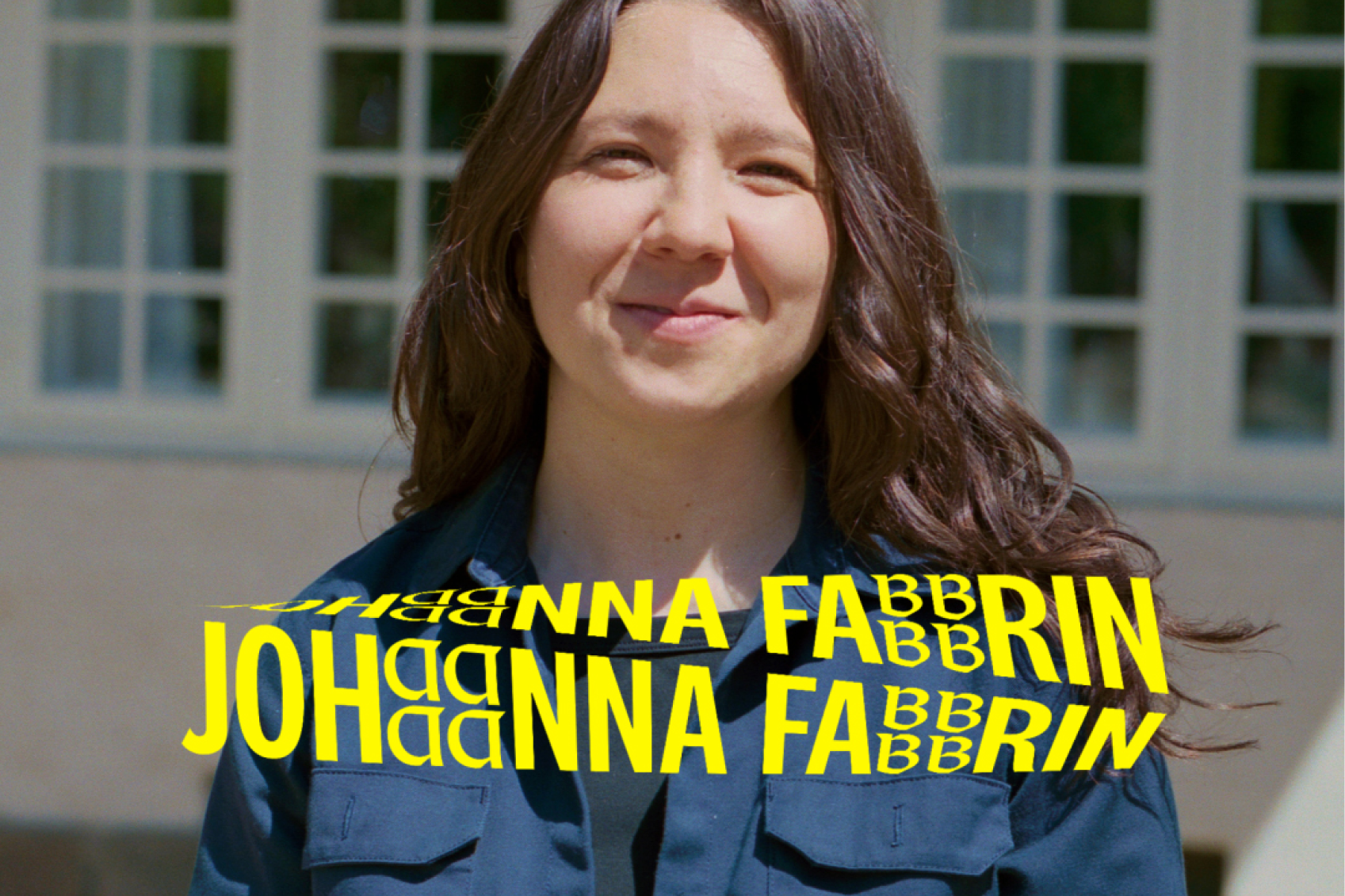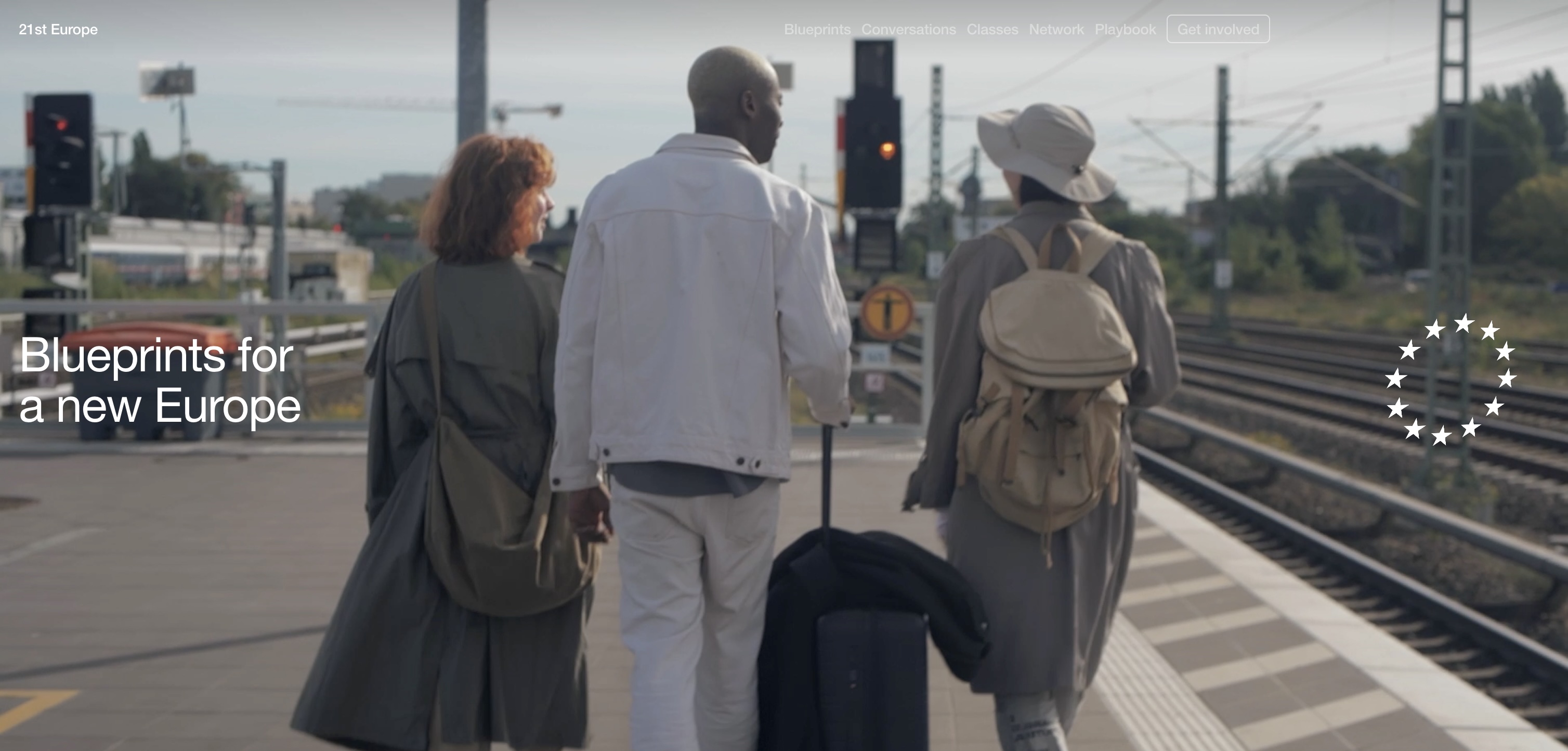
Johanna, can you start by telling us about 21st Europe—what it is and how it works? And what role do you play?
21st Europe is a new think tank dedicated to reimagining the future of Europe. We believe that Europe’s challenges — from democratic fatigue to economic uncertainty and environmental transition — require not just policies, but new shared visions. Our work uses design, research, and storytelling to create blueprints for a new Europe: speculative yet evidence-based proposals that spark imagination and dialogue across borders, while bringing inter-disciplinary stakeholders together toward action.
We operate through three pillars: Blueprints (our research and design outputs), Conversations (media, events, and public engagement), and Networks (partnerships with institutions, industry, and civil society). Together, they form an engine for cultural and democratic renewal connecting vision with mobilisation.
My role is to guide this process — connecting strategic foresight with creative practice, and ensuring that each blueprint doesn’t just imagine the future, but helps others see how to build it.
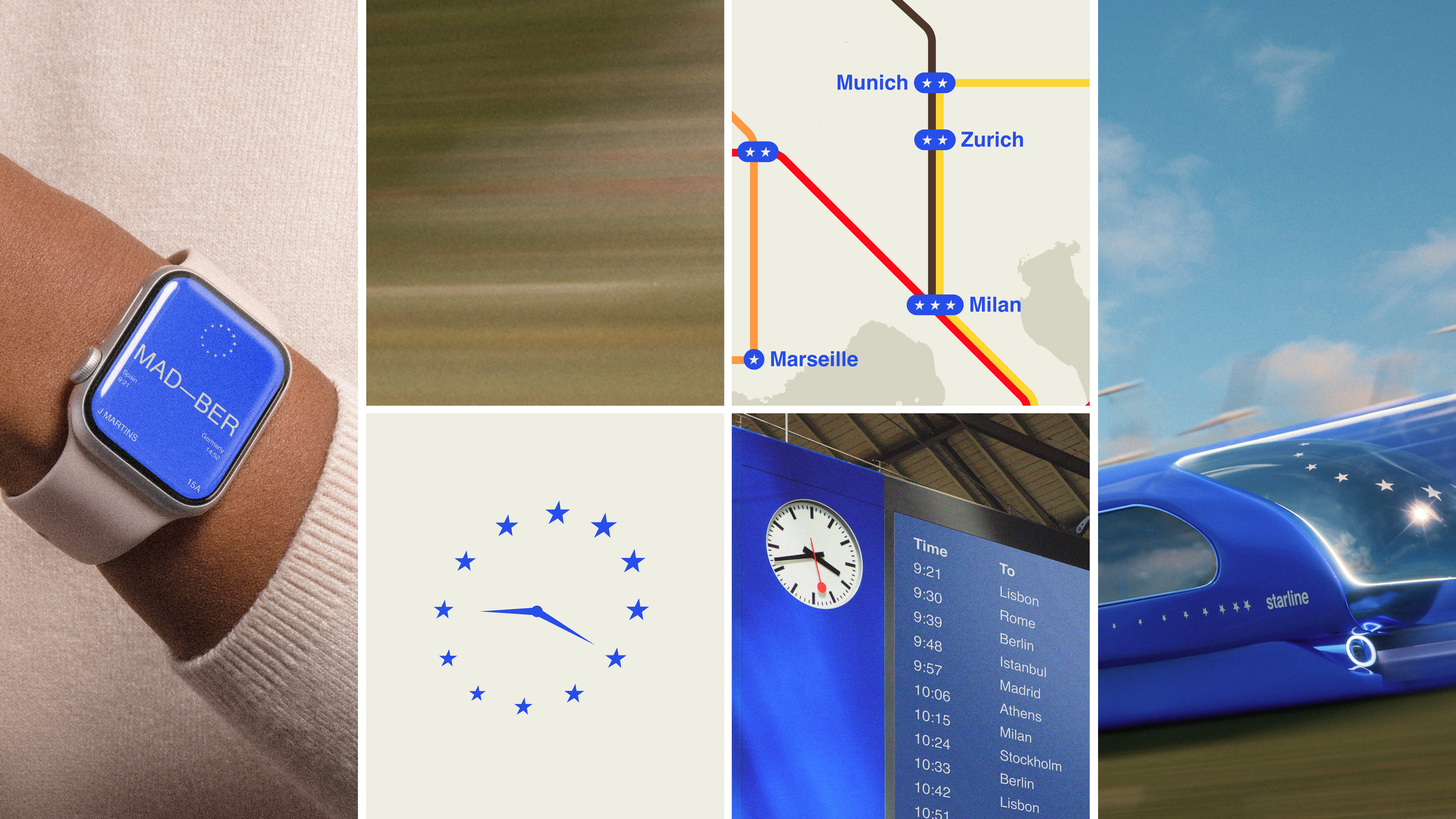
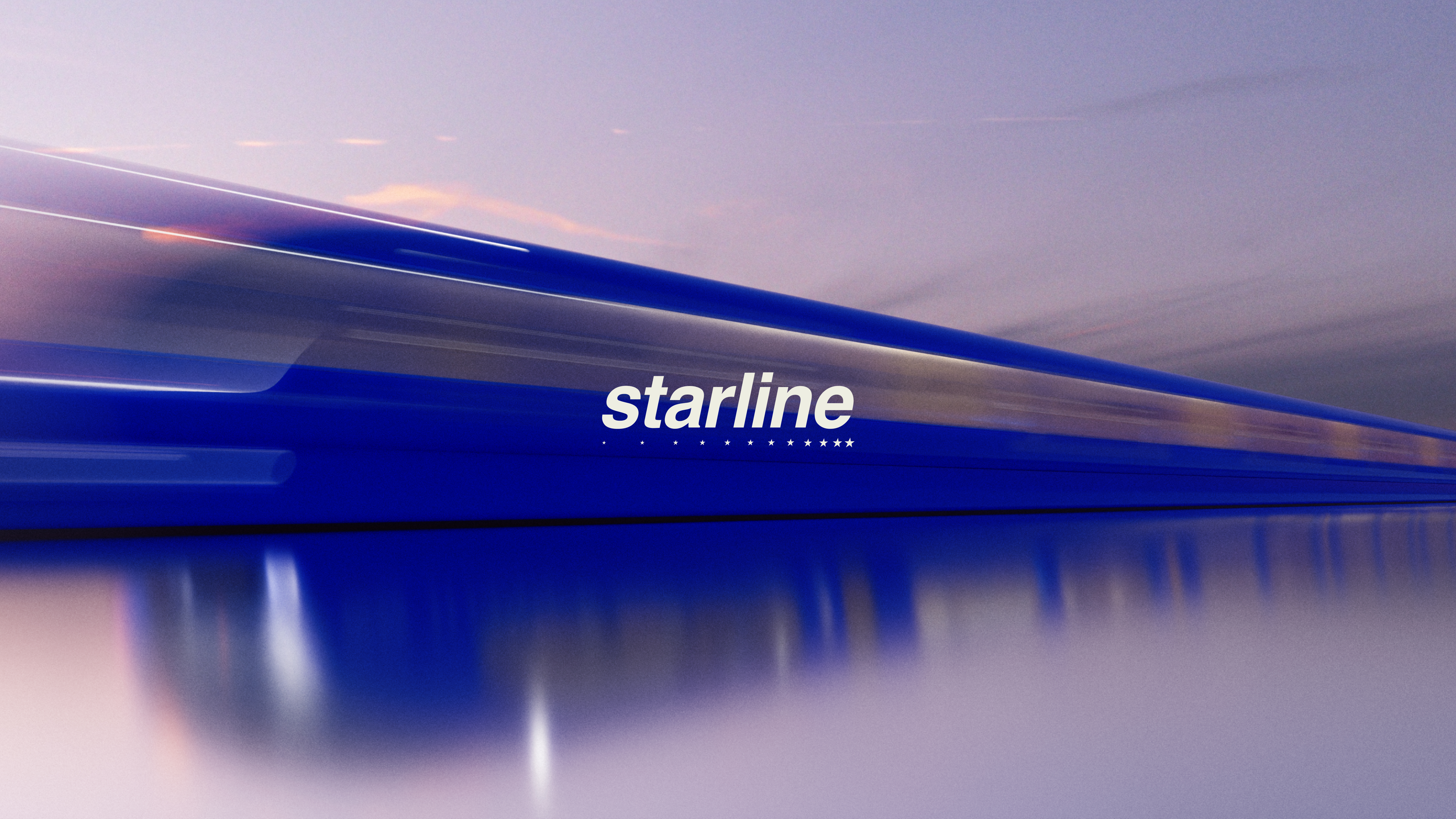
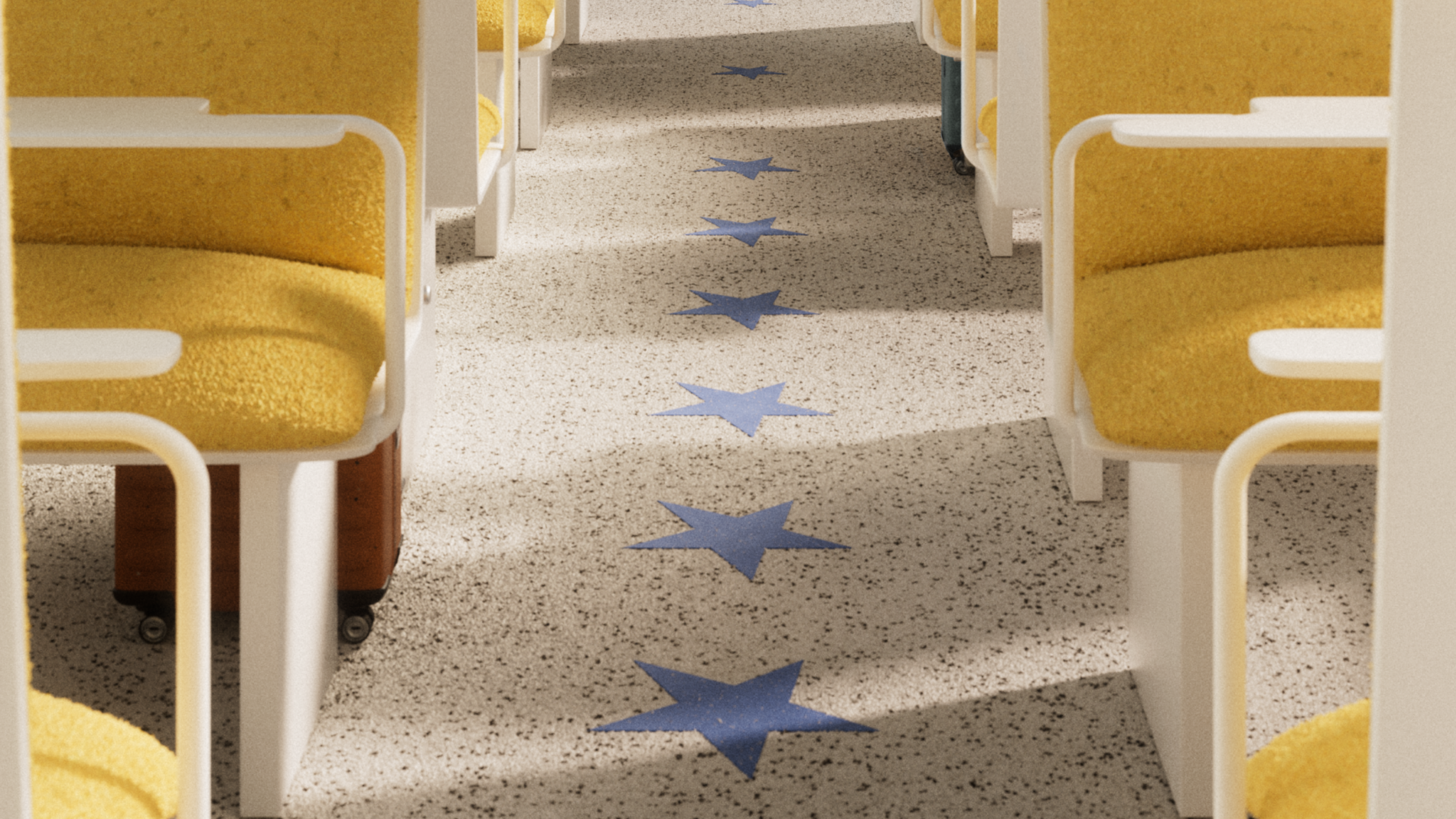
Why is speculative design central to 21st Europe?
At 21st Europe, speculative design is our way of making complex, systemic issues tangible. We translate data and research into narratives and visuals that people can understand, critique, and build upon. It’s not about predicting the future, but provoking imagination — giving citizens and policymakers a sense that alternative paths are possible.
Policy and politics often work within the limits of what seems immediately achievable; design helps us expand that space of possibility to start with the question: what kind of future do we want? Then we work backwards from there instead of being constrained by what is perceived to be technically, economically or politically achievable today. Many of these artificial constraints are something we put on ourselves when we lose our sense of imagination, but design can be a powerful tool for bringing back a sense of wonder that translates into ambition.

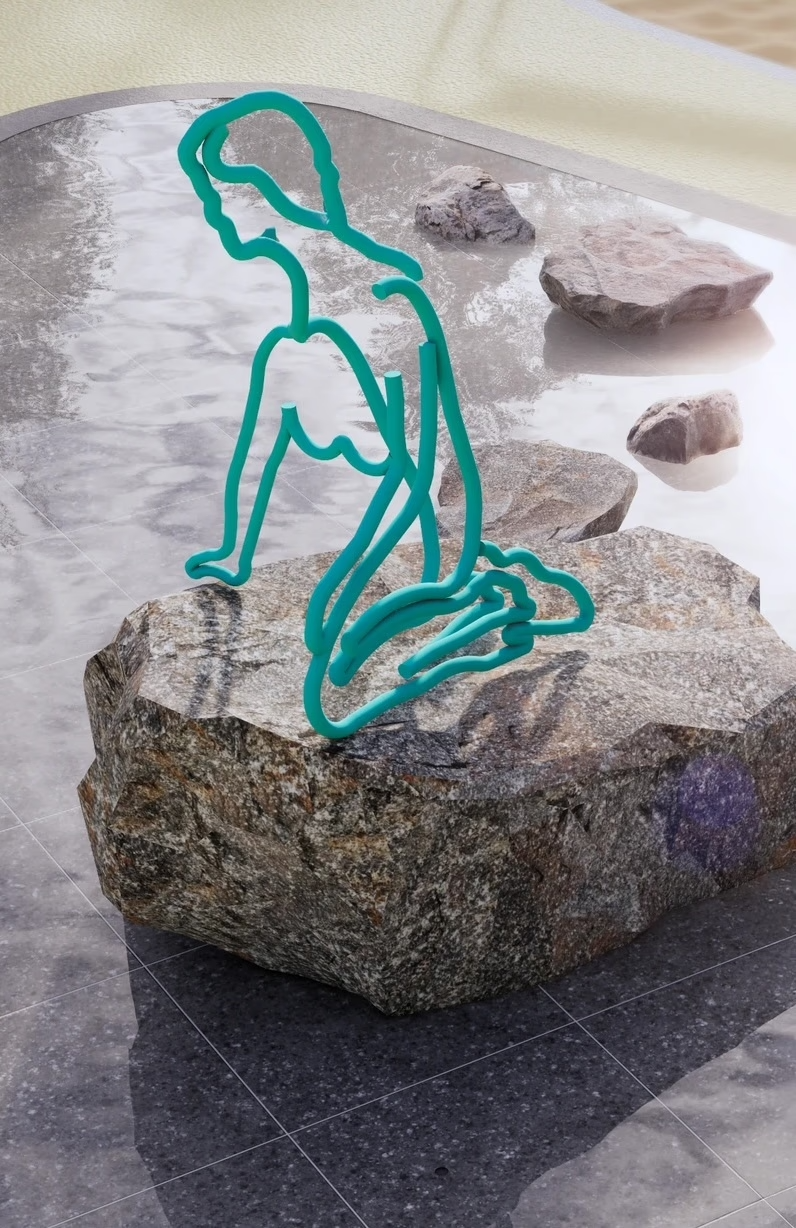
Collaboration seems to be key to imagining new futures. Can you talk about this in the context of 21st Europe and its activities?
Much of the inspiration for 21st Europe in terms of the need for an ambitious, collective vision of the future of Europe comes from the original European project after the Second World War, which was built on collaboration across borders, disciplines, and ideologies.
We’re trying to reignite that same spirit for the 21st century. Our work is inherently collaborative: every blueprint is shaped through conversations with designers, economists, artists, policy thinkers, and civil society actors. We believe innovation happens at the intersections — between creativity and evidence, imagination and governance. Collaboration ensures that the visions we create are not abstract exercises, but grounded in the lived realities and hopes of people across Europe.
When it comes to policy, what role do designers have in shaping or implementing new policies?
Designers bring something policymakers often struggle with: the ability to visualise complexity and communicate ideas emotionally and intuitively. Policy shapes systems, but design shapes how people experience them.
We see design as a strategic tool for democracy — one that can make policies understandable, accessible, and even inspiring. By framing problems differently, designers can help decision-makers see long-term connections and unintended consequences.
Ultimately, we believe designers should not only design products or services, but also design possibilities — creating visions that inform policy with empathy and imagination.
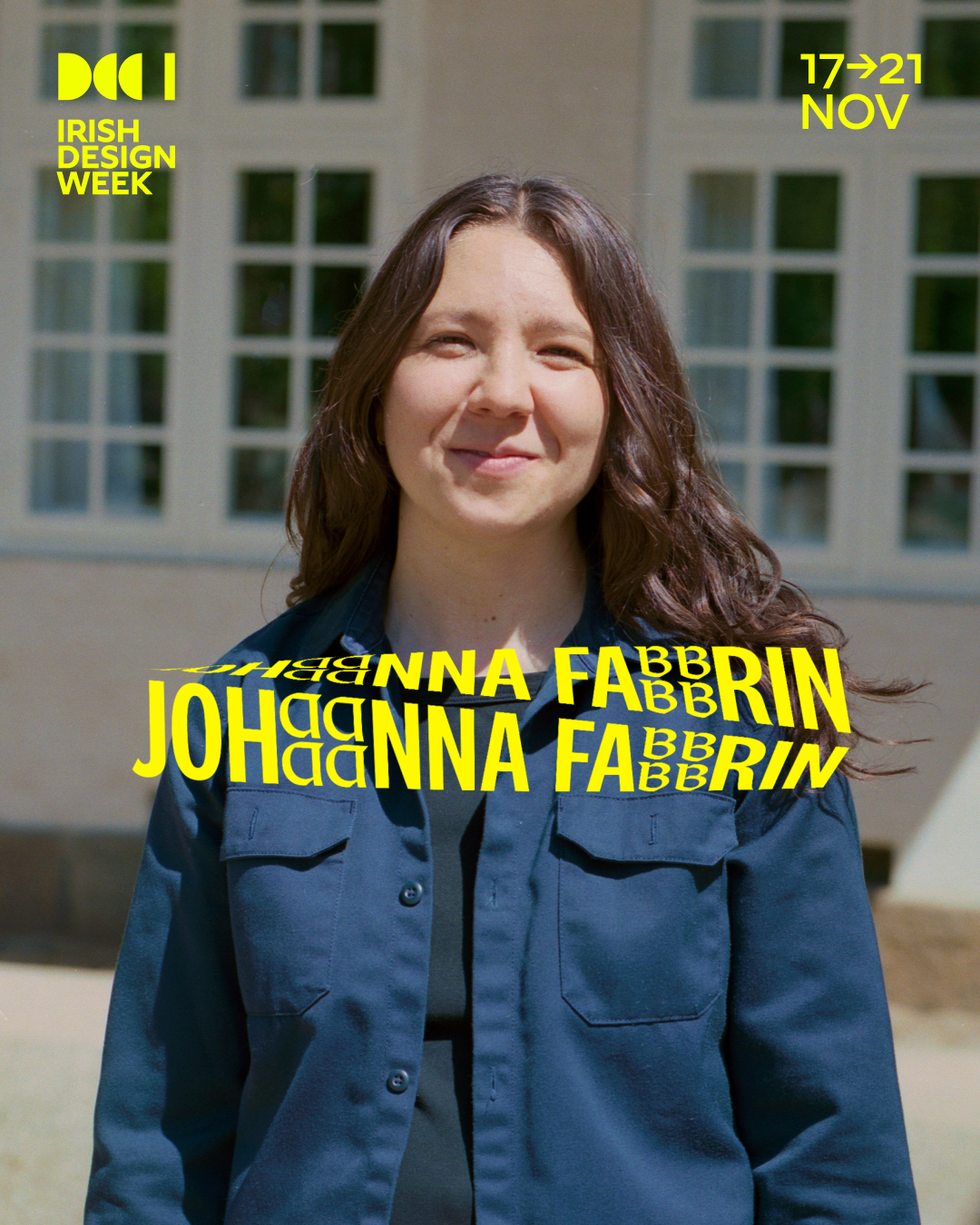
Last but not least—why should someone attend your talk during Irish Design Week? What can they expect?
The talk is an invitation to look at Europe and design through a wider lens. We’ll explore how design can go beyond aesthetics or innovation to become a civic force, shaping the narratives and systems that define our collective future.
Attendees can expect to see how design can be applied to real societal challenges: from democracy and sustainability to belonging and identity. We’ll share insights from our first blueprints, including our newest one launching in November, and reflections on how creative work can help reignite the optimism and ambition that once defined Europe’s founding era.
It’s for anyone who believes design can do more than solve today's problems, but can be part of determining what future we want to live in.
—
Join us at Designing Together: Prototyping Better Futures from 5:30 PM on Friday, November 21st, at the Royal Irish Academy of Music to close out Irish Design Week 2025.
Tickets are €5 and you can book them here.
In partnership with Design & Crafts Council Ireland.
